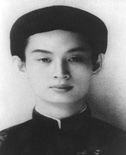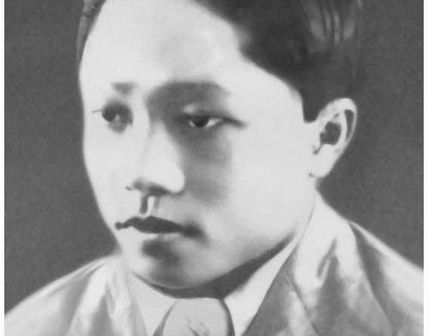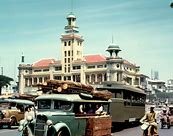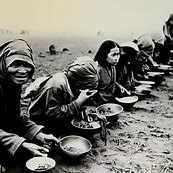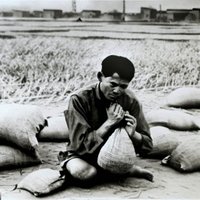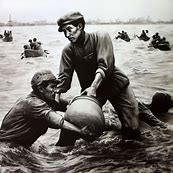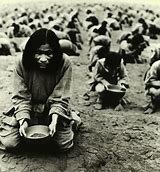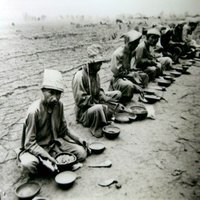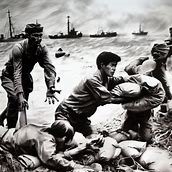PHẬT GIÁO HÒA HẢO
HARMONY BUDDHISM
Poet Nguyen Xuan Thiep, style named Viet Chau from 0̃7 March 1917 to 02 September 1945
Saigon in the 1940s
Bài Thơ Đức Thầy viết tặng Thi Sĩ Việ̣t Châu - A Poem gifted to the Poet Việt Châu by Lord Master
Xe về chở theo chàng thi-sĩ,
Bảo làm thi mãi nghĩ không ra.
Vậy mà giữa chốn phồn hoa,
Vang danh thi-sĩ hiệu là Việt-Châu.
Quen thói viết thơ sầu thơ cảm.
Không dìu dân hắc ám qua truông.
Ngâm nga giọng quá u buồn,
Làm cho độc-giả quay cuồng mê-ly.
Theo dõi gót từ-bi mấy bữa,
Phàm tâm kia đã rửa hay chăng?
Đương cơn sóng dậy đất bằng,
Thi-nhân đứng ngó để tăng-sĩ làm.
Tăng-sĩ quyết chùa, am bế cửa,
Tuốt gươm vàng lên ngựa xông pha.
Đền xong nợ nước thù nhà,
Thiền môn trở gót Phật-Đà nam-mô.
Chừng ấy mới tịnh vô nhứt vật,
Bụi hồng trần rứt sạch cửa không.
Chuông linh ngân tiếng đại-đồng,
Ta-bà thế-giới sắc không một màu.
Sài-Gòn đến, trống lầu đã trở.
Đề-huề nhau cửa mở xuống xe.
Khuyến nông chấm dứt mùa hè…
Trên đường về Saigon, tháng 6 năm Ất-Dậu (1945)
Our returning bus carries a poet,
Asked to extemporize, he's tried hard in vain.
Yet, among the urban place, he stands,
As a famous one whose style is Viet Chau.
Though he’s used to sentimentally compose,
He has not guided masses through disaster.
The chanting voice is so somber,
As to drive his reader whirling in estacy.
Last few days he’s kept Mercy’s company,
Has he cleansed that lay mind?
While the ground shakes and billows rise,
The poet just looks on the monk fending.
The monastic resolves to close his building,
With a sword, on horseback, he charges.
After having paid off his loyal part,
He returns and recites Amida.
Then, he meditates to effect emptiness,
And dusts himself off mundaneness.
The divine bell of cosmopolitanism resounds,
All over, being and non-being have no bounds.
The station siren has honked at Saigon Stop,
Together the door opened, we get off.
Summer’s Working Farm campaign is over…
On the way back to Saigon, June of Rooster (1945)
(1) Background of the Working Farm campaign
This link is a good description of the famine of 1945 which had prompted many compatriots of Cochinchina, particularly Hoa Hao Buddhists, whose majority lived in the Mekong Delta well-known for its name of ricebarn of Southeast Asia, traditionally to quickly respond by trying to send their cereal supplies through to affected North and Central Vietnam. However, their efforts were thwarted by disruption in North South transport systems in many areas, by various factors, esp. Allied bombings, Japanese policy of encouraging Vietnamese peasants to substitute their jute crops for for rice paddy and control the stockpilings of rice in Laos, the Viet Minh-led peasants raids on rice stockpilings, colonial French government's weakened by Japanese occupation, for example.
In a socio-historical context, Lord Master Huynh encouraged His adherents to do the best they could to reopen their land for as much rice farming as possible, hopefully they could dispatch their crops away, whatever means were available in their hands.
